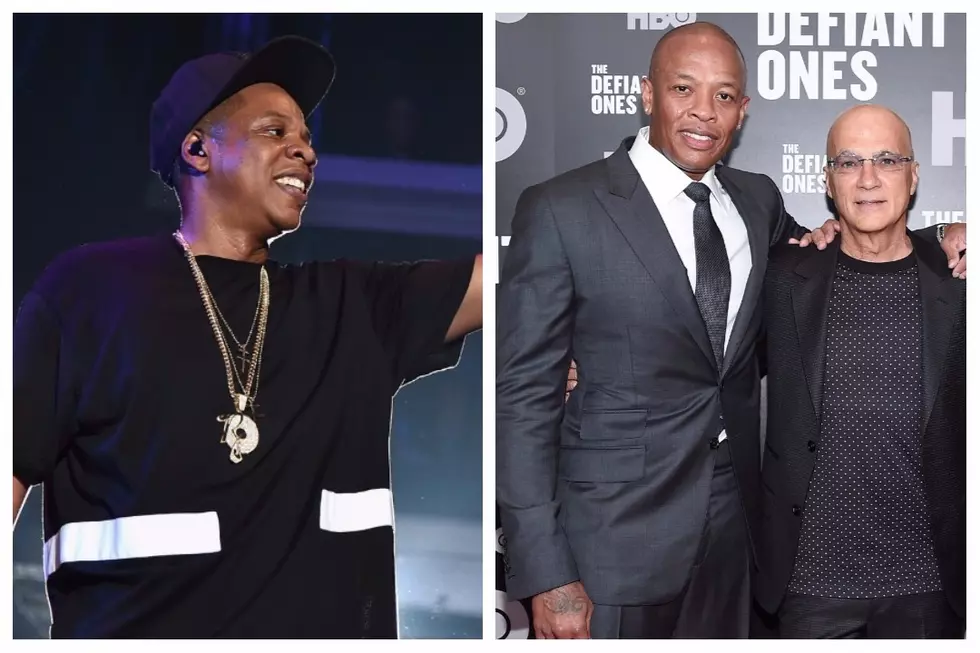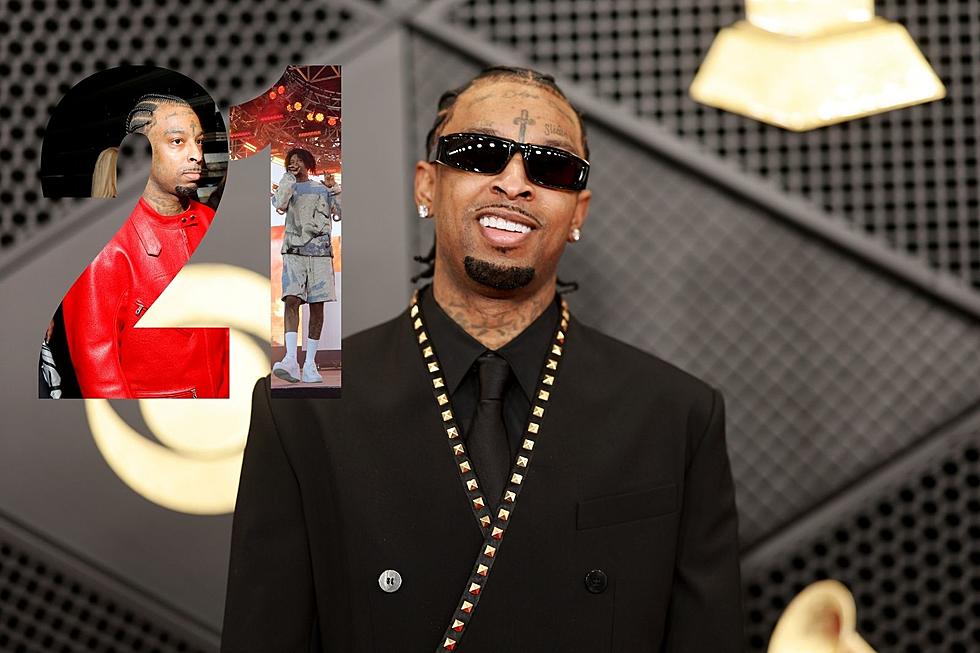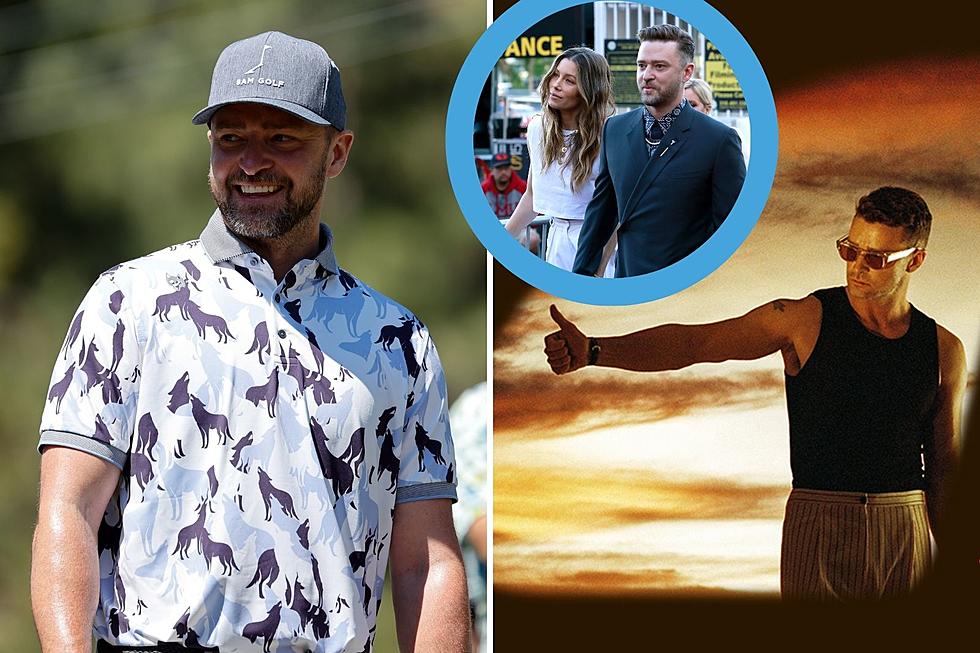
JAY-Z, ‘The Defiant Ones’ and the New Rap Narrative
Hip-hop is no longer simply "a young man's game."
Make no mistake about it, hip-hop is still very youth-driven. Young people determine where the music and culture is heading, as they always have. But hip-hop has been around since the 1970s, and with more artists and fans in their 40s and 50s, it stands to reason that the genre's scope would have to expand beyond what appeals to 21 year olds. At the very least, we have to embrace the idea that hip-hop's elders are just as viable to the culture and genre as the young hitmakers sparking trends.
While that expanded scope hasn't exactly led to "adult contemporary rap," it has led to fortysomethings in hip-hop becoming more assertive and visible. 48-year old Ice Cube released the timely "Good Cop Bad Cop" in June; that same month fellow Compton vet MC Eiht, who is 47, returned with the DJ Premier-produced Which Way Iz West. 42-year old Atlanta rap legend Big Boi recently dropped Boomiverse and 90s mainstays A Tribe Called Quest had one of the most acclaimed albums of 2016 with We Got It from Here... Thank You 4 Your Service.
That's right, folks, hip-hoppers are happily and successfully navigating middle age. But the shift goes beyond album releases--another intriguing aspect of hip-hop's media maturation has been the surge in high-profile projects that document the genre's history. More artists' stories are being told via documentaries and biopics--very visible releases on TV and in film that have earned rave reviews and high box office returns. Alongside the glut of successful "grown folks" rap albums have come these onscreen projects that offer a glimpse into artists that have made hip-hop what it is today.
In HBOs The Defiant Ones, a riveting new docuseries that chronicles the respective rises of music moguls Dr. Dre and Jimmy Iovine, Dr. Dre walks us through the parts of his history that weren't fully fleshed-out in 2015s hit N.W.A. biopic Straight Outta Compton. Director Allen Hughes delivers an enthralling look at both Dre and Iovine, with Dre opening up about his past in a way that the notoriously private superproducer rarely shows on-camera. The pain he felt at the dissolution of N.W.A, the group he'd co-founded with Eazy-E and Ice Cube, his embarrassing missteps as a labelhead and businessman--it's all outlined with a mix of respect and realness by the filmmakers.
The Defiant Ones comes on the heels of a flurry of hip-hop related projects that give life to the genre's classic years: Diddy's Can't Stop, Won't Stop, Benny Boom's 2Pac biopic All Eyez On Me, 2016s The Art of Organized Noize on Netflix, the A Tribe Called Quest doc Beats Rhymes & Life from 2011 and 2014s Time Is Illmatic, a look at the making of the classic 1994 album from Nas.
Oftentimes, the new hip-hop narrative is being shaped by superstar rappers themselves. As more and more hip-hop stories get the biopic treatment or become the subject of extensive documentaries, and as more albums come from the creative minds of grownass men who have lived enough life to reflect on twists and turns of their journey; we are watching some of hip-hop's most famed artists as they look back on the stories of their careers with the wisdom of age.
JAY-Z's new album 4:44 has garnered some of the best reviews the veteran rapper has received in years; due in large part to its highly personal subject matter. Like The Defiant Ones, it features an uber-successful rap elder statesman baring his soul in more deliberate way than we've seen. When Jay raps about cheating on his wife Beyonce, damaging their relationship and inflicting a devastating emotional toll on her, it speaks to the regrets that come with middle age. Having lived long enough to reflect on the scars inflicted on others, there's something about passing 40 that demands self-evaluation on a more sincere level than the kind of navel-gazing that defines our younger years.
But The Defiant Ones and 4:44 also highlight how much we are willing to forgive from men we've deemed geniuses or icons. Dr. Dre's notoriously brutal beating of Dee Barnes is addressed in the HBO documentary, with Barnes herself speaking about the incident and her friendship with Dre prior. For his part, Dre acknowledges his wrongdoing ("I was out of my f—ing mind at the time. I f—ed up, I paid for it, I’m sorry for it, I apologize for it.”) but the film tellingly sidesteps the other reported incidents of him battering women; including his ex-girlfriend, R&B singer Michel'le and former Ruthless Records affiliate Tairrie B.
Forgiveness is something that we demand of our women for the sake of lionizing our most notable men. From John F. Kennedy's marital indiscretions to John Lennon's physical and emotional abusiveness, there is a lengthy list of famous and revered men who disrespected or dehumanized women around them on their way to immortality. We can applaud growth without giving absolution. "I'm sorry" only does so much.
Legends like Dr. Dre, JAY-Z and others are telling their own stories and doing it well, a necessary happening for a genre that's more than 40 years old. But in hip-hop's greats actively seeking to tell their own stories, we are obligated to face the warts of their past without rushing to salute them for simply "owning their mistakes." Dr. Dre's contrition doesn't negate or downplay his abhorrent behavior; JAY-Z's revelations about love and solidarity don't change the fact that he caused serious, irrevocable pain on the road to those revelations. How much do our women have to suffer for us as men to grow?
Rappers telling their own stories should be welcomed. For too long, the genre has been under-canonized, and it's history has been relegated to made-for-TV specials and grainy YouTube clips. That has changed over the last several years, but as we applaud the artists, filmmakers, interviewers and documentarians who are dedicated to telling these stories and telling them well, we should also remain vigilant in keeping these stories as clear-eyed as possible. We don't have to linger on the darkest moments in an individual's history, but we shouldn't gloss over it, either. The women in these men's lives aren't footnotes to their greatness, and their treatment of them should be examined as part of their legacies and identities as men.
The new rap narrative is one of evolution and progression. As a byproduct of a violent American culture, hip-hop can wallow in some toxic ideas about masculinity, relationships and sex. Elder artists addressing their former transgressions is welcomed and could hopefully lead to more artists discarding those toxic views earlier in their lives. This is what happens when you allow for growth. Being honest about the damage done and applauding sincere, invested change don't have to be mutually exclusive. And telling our stories is of the utmost importance. Especially considering the story isn't over.
And that's really the best thing about this new rap narrative: It's still being written.
Watch the Trailer for HBO's The Defiant Ones:



